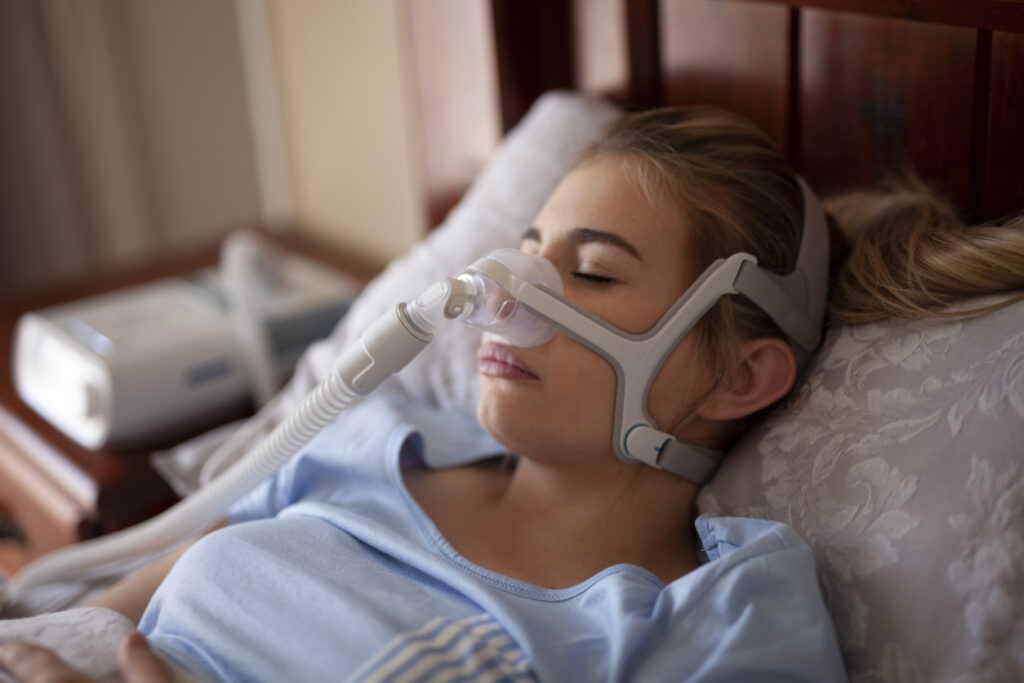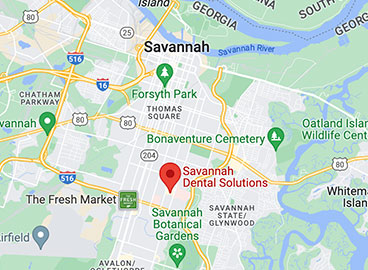
A good night’s sleep is important for both your mental and physical health, but what do you do if your sleep apnea is keeping you awake? In the past, large and uncomfortable masks and machines were the main solution for those suffering from sleep apnea. Thanks to modern day technology and advancements in the healthcare industry, however, there are much more convenient options available to help treat your sleep apnea.
What is Sleep Apnea?
Obstructive sleep apnea occurs when your airway is blocked during sleep, causing abnormal breathing patterns or keeping you from breathing at all. This can be caused by a number of different factors, such as:
- Size and position of your tongue, jaw, tonsils, or neck
- Obesity, which shrinks your airway
- Sleeping on your back
- Drug or alcohol use
- Nasal congestion that inhibits your breathing
Although men are more likely to suffer from sleep apnea than women, it can affect anyone regardless of age or sex. Sleep apnea affects the quality of your sleep as well as your body’s ability to take in oxygen, which could result in serious health problems if left untreated.
Treatment Options For Sleep Apnea
If you suffer from sleep apnea, your medical professional might recommend a sleep study to analyze your breathing patterns. Methods of treating sleep apnea depend on the root cause and severity of the condition, and can include:
- Lifestyle Changes. In some cases, sleep apnea stems from lifestyle choices that can be changed by the patient. Losing weight or quitting smoking may reduce strain on your airway, alleviating your sleep apnea symptoms. Changing your sleeping position to lie on your side or stomach might also open your airway to help regulate your breathing as well.
- Continuous Positive Airway Pressure (CPAP) Devices. These machines pump pressurized air into your airway at a consistent pressure. This constant airflow promotes steady breathing and keeps your airway from collapsing as you sleep. Although it is an effective sleep apnea treatment, and one of the first most doctors prescribe to patients, it may not be for everyone. Some machines are quite bulky, and wearing the mask may cause discomfort.
- Mouthguards / Oral Appliances. An alternative to CPAP machines, these mouthguards are custom made to fit your teeth. The device works by repositioning your lower jaw while you sleep, allowing additional space in your airway to aid in breathing. A mouthguard can also protect against teeth grinding while you sleep, as well as aid in reducing snoring.
- Surgery. For severe sleep apnea cases, or ones where other forms of treatment prove ineffective, surgery may be a last resort. One of the most common forms of surgery to help relieve sleep apnea is tonsil removal, though other anomalies in your anatomy may also be altered or removed if a doctor determines they are the root problem of your sleep apnea.
Ready to Treat Your Sleep Apnea?
If you are suffering from sleep apnea and looking for a solution, Savannah Dental Solutions can help. Our dedicated team is committed to your health and wellness, and is ready to help you control your sleep apnea! Call us at (912) 354-1366 to schedule a sleep apnea consultation, or contact us online.


